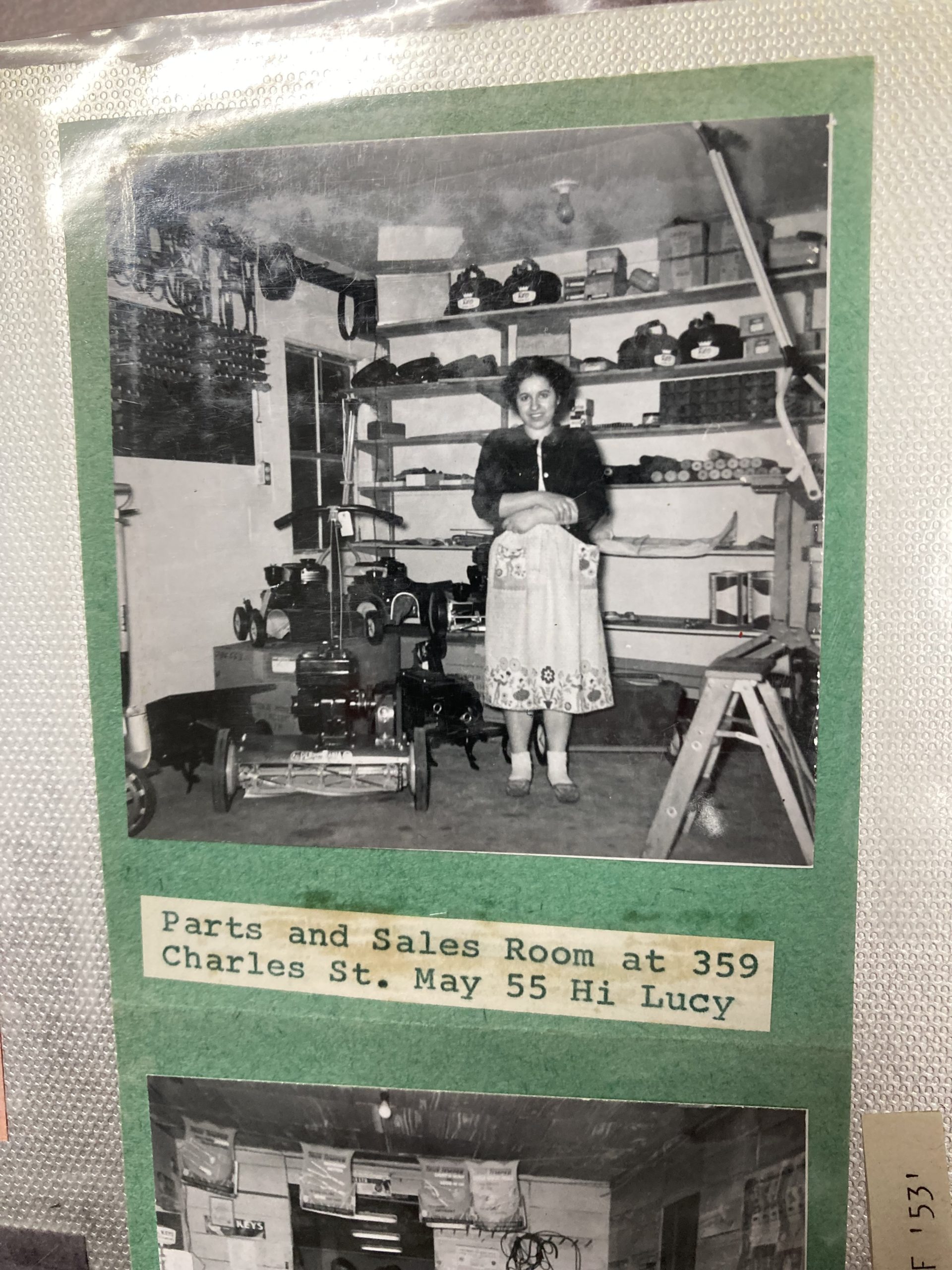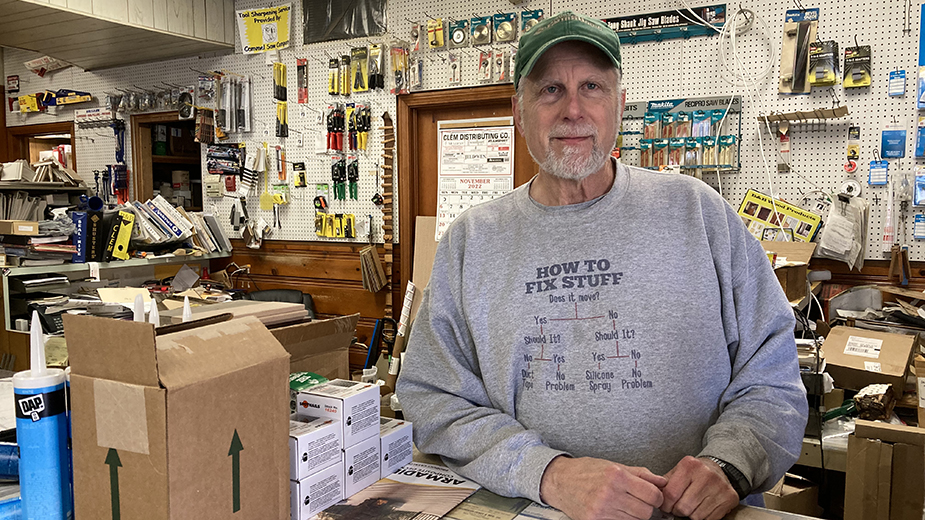Do-Cut Adapts to Tame Rough Landscape
WARREN, Ohio – On the eve of the pandemic shutdowns in March 2020, Do-Cut Sales and Service President Lisa Miller sat in her home, her gaze flitting between the news on the television and the online orders for her business.
Both screens gave her reason to be anxious. The bigger shock, however, came from the one showing Do-Cut’s sales.
“I looked at my husband and I said, ‘You’ve got to come to work on Monday,’ “ she says.
It didn’t matter that her husband wasn’t employed at Do-Cut. She was going to need his help. “We had 600 online orders.”
Eventually, business did level off, although only slightly. In fact, the next two years were the best in the 75-year history of the company, Miller says.
“I literally shipped packages two blocks away. We just did what we had to do.”
It wasn’t good fortune that allowed Do-Cut to thrive during the pandemic. The surge in sales resulted from many years of innovation and hard work.
The company’s story begins in 1947 when a lawnmower salesman from Akron visited Lisa’s parents, Anthony and Lucy Terzigni.

Anthony was a tool and die maker at Packard Electric who, on the side, sharpened reel mowers and chainsaw blades in his garage at their home on Charles Street in Warren.
The salesman figured they could sell the three mowers, which he assumed correctly, and he expected to be paid upfront for them, which he assumed incorrectly.
“My mother said, ‘No way. As soon as I sell them, I’ll send you the money.’ That’s how it started.”
Soon they opened their first store on U.S. Route 422 in Warren and moved into a house directly in front of it.
In 1967, the Terzigni family moved to Howland and arranged for the Warren Fire Department to perform a controlled burn on their house so they could expand the store footprint.
Miller, the youngest of six children, says the business was an important part of their daily lives. “Everybody contributed. My sisters and I did all the office stuff,” she says.
Her brother Joe was heavily involved in the marketing while her other brother Anthony became the power equipment expert.
“We cleaned the toilets, too. I’m still cleaning the toilets. If it needs done, it gets done,” Miller says.
In 1978, the Terzignis opened a second store on Raccoon Road in Canfield. “Then the bottom fell out of everything and my mother and father were making huge payments to the bank. She was nervous every minute of the day,” Miller says.
But the Terzignis persevered and soon the Canfield site began to outperform the original store in Warren — that is until fire destroyed it in the fall of 2011.
Within a year Do-Cut reopened in a new location on U.S. Route 224 in Boardman. In spring 2019, they reopened on the site of the original store on Raccoon Road.
“That has proven to be a wonderful move back for us. It’s like we’re home,” Miller says.
Anthony Terzigni retired from the business in 1985 at the age of 65. Lucy joined him a few years later, her duties now performed by Lisa.
In 1994, Do-Cut issued its first sales catalog, which Miller credits with helping them expand the large customer base that served them so well during the pandemic.
Each year, Do-Cut shipped around 150,000 catalogs to landscapers throughout the country, which eventually evolved into their online sales platform.
Today Do-Cut ships its products all over the world, with online sales accounting for about a fourth of total revenue, Miller says.
Over the years, Miller’s siblings left the business, now owned by Miller and her two partners, long-time employees Tom Morgan and Jay Curry.
Morgan, who began working at Do-Cut in 1995, says the biggest change in the industry today is the transition to battery-powered power equipment.
“Everybody keeps saying, ‘It’s going to be the future.’ It’s here. It’s coming full-force,” he says.
Even large equipment such as zero-turn mowers and snow blowers are now available in battery-powered versions, Morgan says, and the technology is advancing rapidly. “It’s just as powerful as the gas-powered stuff and you’re getting better run-time,” he says. “You don’t have to worry if your carburetor is going to start after it’s been sitting for a year.”
For those considering switching to battery-powered equipment, Miller recommends choosing a reputable brand and sticking with it for all purchases.
“Because the batteries all have the same footprint. So every time you buy a new piece of equipment, you get a new battery and charger,” she says. “It’s pointless to buy a battery for $270 when you can buy a tool with a battery and a charger for $299.”
The biggest challenge the business faces currently, Morgan says, is being unable to find enough technicians.
Most people who go into engine repair do so, he says, because they want to work on “fun stuff” like cars and motorcycles. “Finding a technician in our industry is like trying to find a unicorn,” he says.
Technicians at Do-Cut have to regularly take online courses to remain certified to service products. In some cases they have to attend in-person classes and pass tests.
While the business is having difficulty getting products and parts because of supply-chain issues, Morgan says the relationships Do-Cut has developed with suppliers over the years has helped them weather the storm.
“We have the pull to get product and I think that’s what’s helped us,” he says.
To see how that benefits the consumer, Miller says, look no further than snowstorms this winter that depleted the inventory of snow blowers in the area.
Miller says Do-Cut was immediately able to contact their suppliers to get product back in their stores. “That’s what you get when you shop small. You can get a company that can react right now,” she says.
Consumers need to be cognizant of where they spend their dollars, she says, and also what’s at stake when local businesses aren’t supported.
“I don’t think any of us wants to wake up one day and see tumble weeds and delivery vans running down the road because all of the storefronts are gone,” she says. “Nobody wants to see their home value plummet because there’s nothing in their neighborhood anymore.”
Pictured at top: Lisa Miller holds the first store catalog, published in 1994. Her parents founded Do-Cut Sales and Service 75 years ago.
Copyright 2024 The Business Journal, Youngstown, Ohio.



